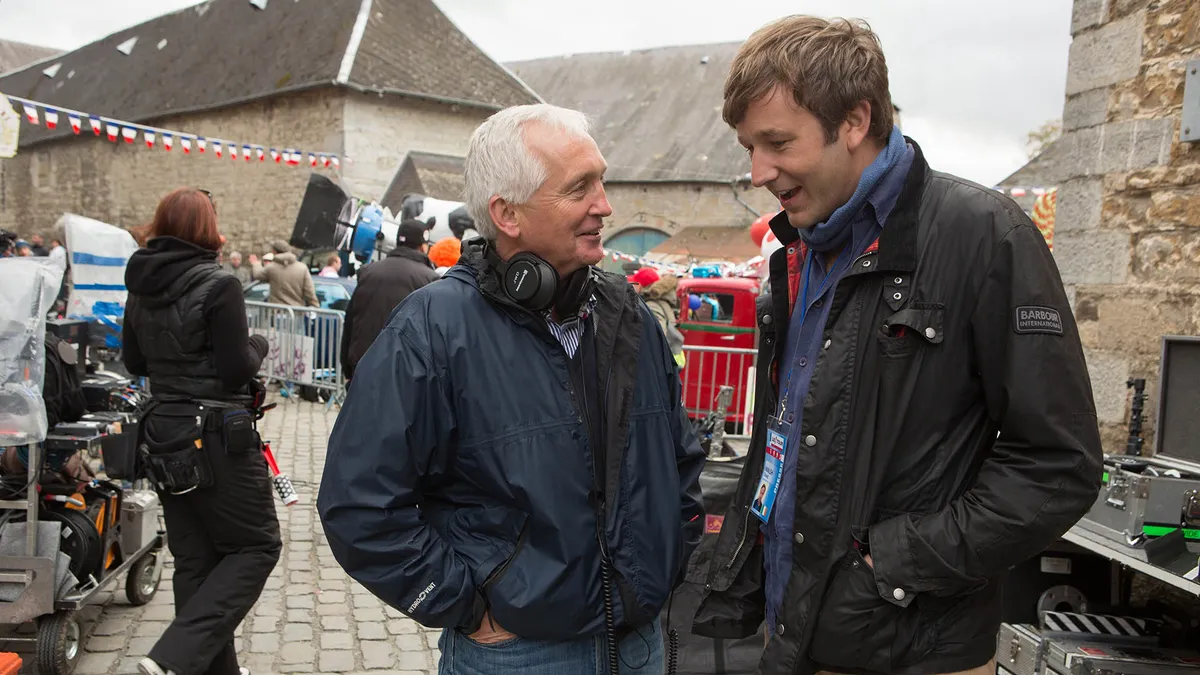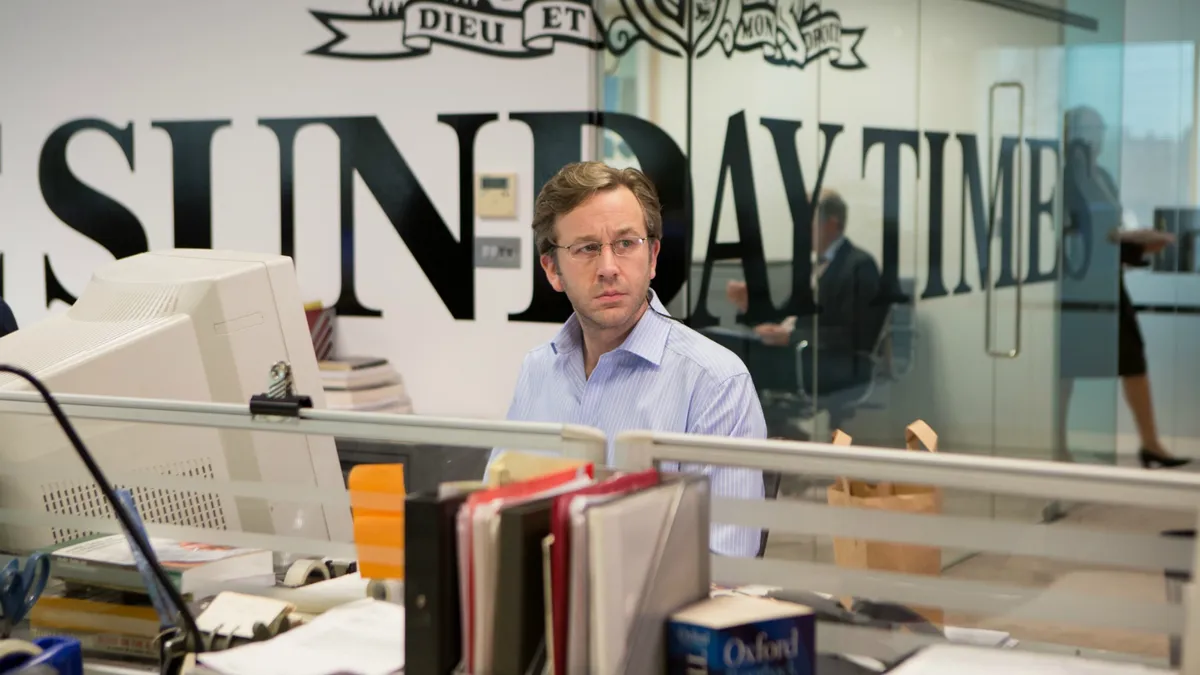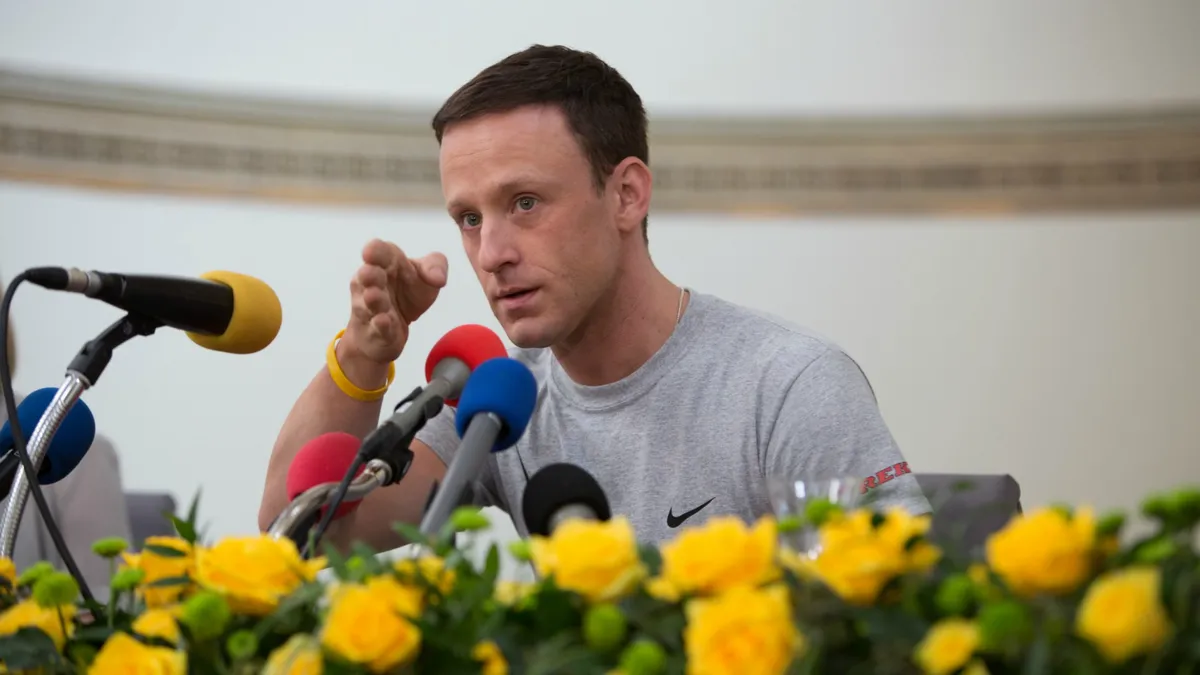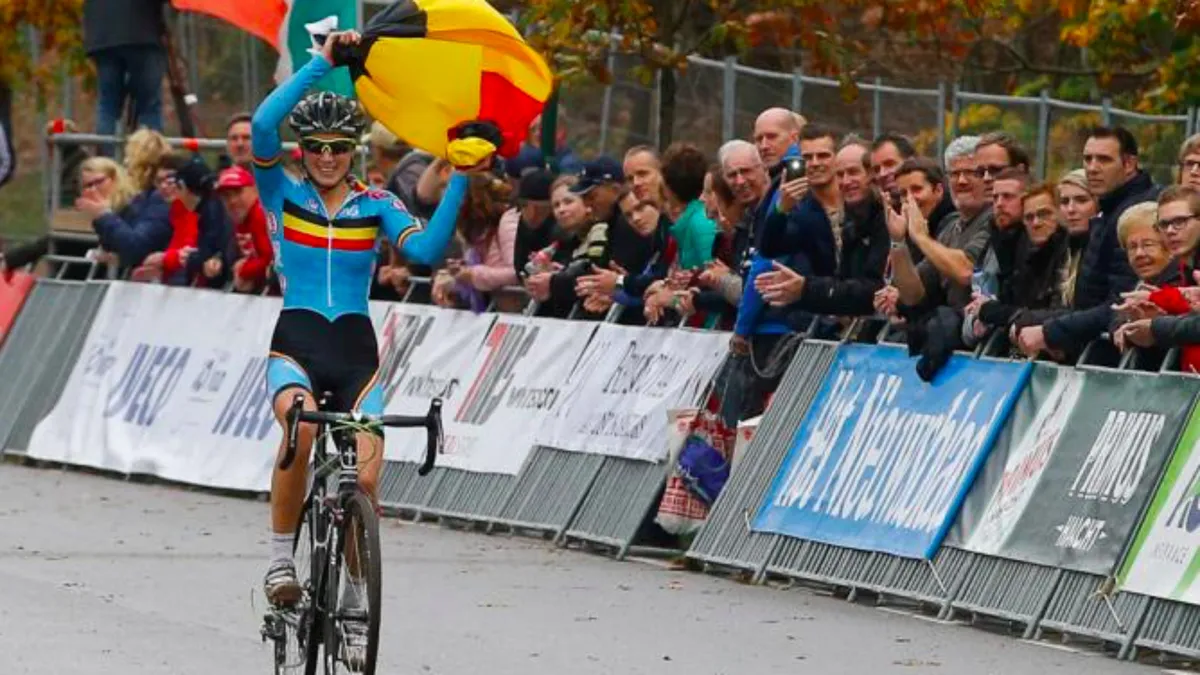As the journalist who pursued Lance Armstrong for 13 years, David Walsh has become something of a legend in his own right. In his quest to bring to light the truth of doping in professional cycling, he’s faced criticism and attack both personally and professionally. With his story now turned into a film, BikeRadar spoke to him about the current state of doping in cycling and other sports, and what it’s like to see his work on the silver screen.
Last year David Walsh’s story was brought to the big screen in the Working Title film ‘The Program’. Starring Ben Foster as a steely-eyed Lance Armstrong, and with Irish actor Chris O’Dowd taking the role of Walsh, the film is based on Walsh’s book ‘Seven Deadly Sins: My pursuit of Lance Armstrong.’
Attempting to take 13 years' worth of hard work and investigation and distill it into an hour and 43 minutes of film was always going to be challenging, but Walsh says he is happy with the result overall.
“I think the movie is really good and I enjoyed it.” he tells BikeRadar. “It made a very honest attempt to tell the story in a very correct way, journalistically.”
Related: Is cycling still the dirty old man of pro sport?
Walsh was closely involved in the development of the structure of the film, working with British production company Working Title and the director Stephen Frears, whose credits include 'The Queen' and 'Philomena'.
“People who know the story backwards will say ‘Oh, we knew all this before’,” he continues. “Yes, you probably did, but you would constitute maybe one percent of the potential audience. Stephen Frears, the director, wanted to tell the story to an audience who didn’t know the details.”
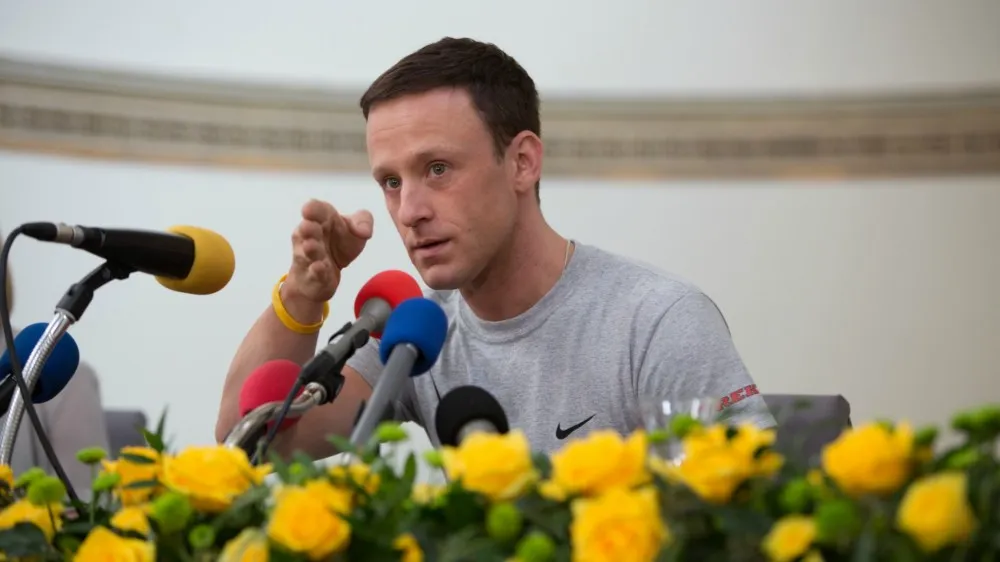
Ben Foster played the part of Lance Armstrong in 'The Program'
The film itself has faced some degree of controversy, with Pierre Ballester, who co-wrote with Walsh the book 'LA Confidential' - the first exposé of the Lance Armstrong case - stating he was intentionally left out of the narrative.
Media, cynicism and the pro peloton
While Armstrong’s reign may be over, the aftermath is still very much in evidence. Walsh himself suffered many indignities at the hands of cycling fans and fellow journalists as a result of his dedication to revealing the truth and has commented in his book that cycling journalists have often been too close to the cyclists they write about, while the relationship between media and pro-peloton may have been too symbiotic to allow true journalistic impartiality in the past.
But with the unmasking of Armstrong and associated revelations, have media attitudes changed?
“I think it has changed. There were times in this year's Tour de France when I thought it had changed too much,” says Walsh, referring to the scepticism and outright hostility shown to Chris Froome, whom Walsh believes to be clean.
“It's okay to be sceptical. But when you start being suspicious and when you start expressing your suspicion, you have to back it up with something that says that says ‘This is where my suspicion comes from,’ and it really should have some substance. There was a lot of suspicion at this year’s race, but not a lot to me that justified it.”
While cycling may be working to clean up its act, other sports now have the dubious honour of taking their turn in the doping spotlight, with athletics and tennis both mentioned in the past few months. If the problem is to be properly dealt with, Walsh feels, then more action needs to be taken.
“I’d love to see the World Anti Doping Agency (WADA) get more teeth, and it would get more teeth if it got more funding. The person who becomes head of the WADA should have always been on the side of clean athletes, desperate for them to get a better deal than they’re getting.”
“The UK anti-doping people have suggested starting again in 2018 with obliterating all the old records, and I would totally agree with that. Of course there would be people who achieved world records without doping who would feel very hard done by, but I think they need to see the bigger picture. There’s a lot of doping records in there, they’re setting marks that no clean athlete can ever achieve, and therefore are an incentive to doping.”
And while the days of chemical doping may or may not be waning in cycling, doping of a different sort has finally reared its head.
Mechanical doping in cycling
At the recent cyclocross World Championships, the UCI found evidence of a motor concealed within the bike of Belgian rider Femke Van den Driessche. It’s the first confirmed case of mechanical doping to date, but is it indicative of a much bigger problem?
In the days since the announcement, riders such as Chris Froome and Bradley Wiggins have stated they believe mechanical doping has been going on for some time within the pro peloton. This is not news to Walsh.
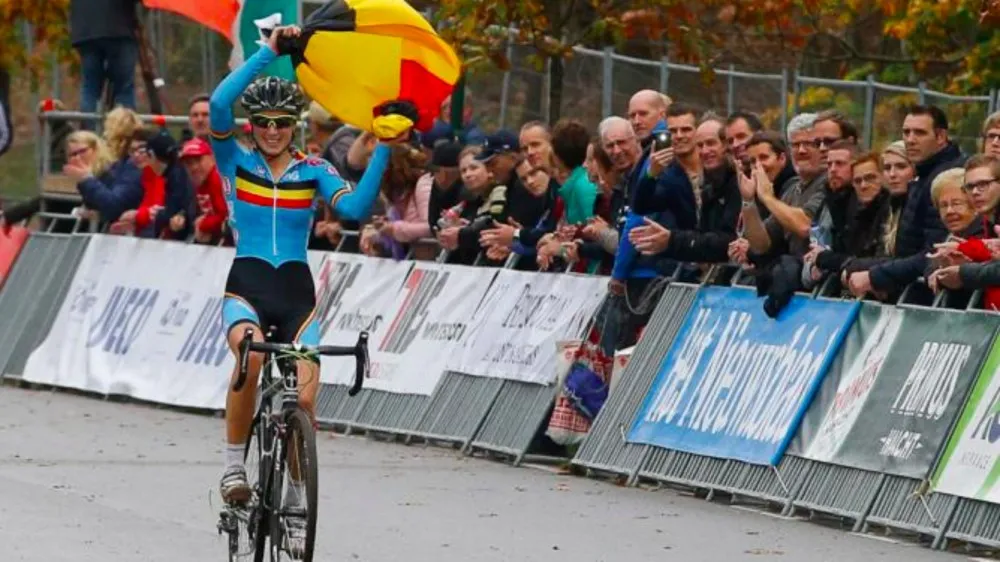
Femke Van den Driessche, who has denied any knowledge of the motor that was discovered by the UCI in her bicycle at the CX World Championships in January 2016
“In 2013 I spent time inside Team Sky, and I heard people within the team say that they thought mechanical doping was possible and they had heard things. I know that Chris Froome, with whom I’d worked on his autobiography, had always feared that mechanical doping was out there.”
Related: What is mechanical doping?
“I did hear a story recently about a manufacturer who was showing some top teams bikes that had motors in them, and one of the teams expressed a lot of interest in buying some. Now, the guy selling them didn’t know why they wanted them, he just didn’t think it was a good idea selling them to a professional team.”
“When you consider what they may be able to do with motors in bikes that can be switched on by remote control, or by somebody away from the bike at a certain point in the race, you think wow, is there going to be no end to the possibilities to cheat and get away with it? And it's something that we can’t be sure the authorities can control properly.”
His cynicism is borne of bitter experience, and refers back to the situation of doping in the 1990s. “The UCI didn’t tell us about doping in the peloton in 1999 with their haematocrit levels, why would they tell us now if they don’t think they can detect it?”
While Walsh acknowledges the positives in that the case was discovered, and hopes it was a one-off, he fears it may not be. And if mechanical doping is the new way to cheat, is there a risk it could become a bigger problem than chemical doping, and what would that mean for cycling as a sport?
“I find it much more depressing than doping. You could argue doping is worse because it affects the health of the athlete as well as the fact that it’s just downright cheating, but somehow mechanical doping diminishes the sport to absolutely nothing. It just makes it a complete obscenity.”
“If mechanical doping ever becomes a reality, the sport is finished. Who would care [about cycling] if you thought that somebody was going up a mountain and could press a button or blink an eyelid and set something off that added five miles an hour onto his speed?”
The Program will be released on digital HD in the UK on Monday 8th February 2016, and on BluRay and DVD on the 15th February 2016.
